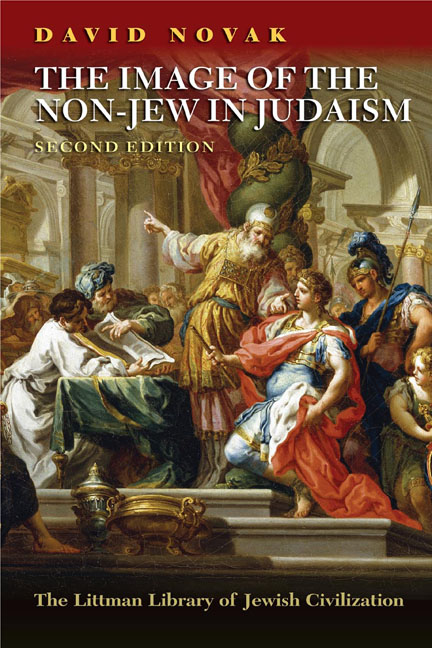Book contents
- Frontmatter
- Dedication
- Preface
- Acknowledgments
- Contents
- Chapter Summaries
- 1 The Origins of the Noahide Laws
- 2 The Law of Adjudication
- 3 The Law of Blasphemy
- 4 The Law of Idolatry
- 5 The Law of Homicide
- 6 The Law of Sexual Relations
- 7 The Law of Robbery
- 8 The Law of the Torn Limb
- 9 Aggadic Speculation
- 10 Maimonides’ Theory of Noahide Law
- 11 Albo's Theory of Noahide Law
- 12 Late Medieval Developments
- 13 Moses Mendelssohn and his School
- 14 Hermann Cohen and the Jewish Neo-Kantians
- 15 Conclusion
- Afterword
- List of Abbreviations
- Notes
- Bibliography
- Index
13 - Moses Mendelssohn and his School
- Frontmatter
- Dedication
- Preface
- Acknowledgments
- Contents
- Chapter Summaries
- 1 The Origins of the Noahide Laws
- 2 The Law of Adjudication
- 3 The Law of Blasphemy
- 4 The Law of Idolatry
- 5 The Law of Homicide
- 6 The Law of Sexual Relations
- 7 The Law of Robbery
- 8 The Law of the Torn Limb
- 9 Aggadic Speculation
- 10 Maimonides’ Theory of Noahide Law
- 11 Albo's Theory of Noahide Law
- 12 Late Medieval Developments
- 13 Moses Mendelssohn and his School
- 14 Hermann Cohen and the Jewish Neo-Kantians
- 15 Conclusion
- Afterword
- List of Abbreviations
- Notes
- Bibliography
- Index
Summary
Mendelssohn and Jacob Emden
It is commonly held that distinctively modern Jewish thought begins with Mendelssohn. His biography reflects the situation of Judaism in Western Europe, especially in Germany, during the later eighteenth century. Mendelssohn's childhood in Dessau as the student of David Fraenkel, a great Talmudist, was spent in the cultural isolation typical of most of Ashkenazic Jewry. His move to Berlin reflects the transition from isolation to cultural interaction with the non-Jewish world. His subsequent position as a leading German- Jewish philosopher reflects Judaism's direct confrontation with the non- Jewish world, a world no longer thoroughly Christian in outlook.
Mendelssohn was keenly interested in the question of universal law, and the new cultural situation in which late eighteenth-century German Jewry found itself required that he interpret the meaning of the Noahide law in a novel way. The inadequacy of restating older meanings becomes evident in an exchange of letters in 1773 between Mendelssohn and the leading halakhist of his day, Jacob Emden. Emden had developed a lenient position towards Christianity, a position originally formulated by medievals such as Rabbenu Tam and Meiri. His correspondence with Mendelssohn is of great historical significance because Emden presents the medieval Ashkenazic view of Noahide law whereas Mendelssohn insists on a kind of secular morality, a possibility rarely countenanced (except, perhaps, for a lone philosopher). The fact that Mendelssohn composed his thoughts as halakhic-style inquiries to Emden— a concession to Emden's rabbinic authority—indicates that he must have believed that the resources of tradition could have provided the material to expand the universal Noahide law in new directions to account for changed circumstances. He writes to Emden:
And tome these matters are difficult (kashim) … that all the inhabitants of the earth from the rising to the setting of the sun are doomed, except us (zulatynu) … unless they believe in the Torah which was given us as an inheritance to the congregation of Jacob alone, especially concerning a matter not at all explicit in the Torah … Concerning this we only have ancestral tradition, but what will those nations do upon whom the light of the Torah has not shined at all …
- Type
- Chapter
- Information
- The Image of the Non-Jew in JudaismThe Idea of Noahide Law, pp. 206 - 212Publisher: Liverpool University PressPrint publication year: 2011

